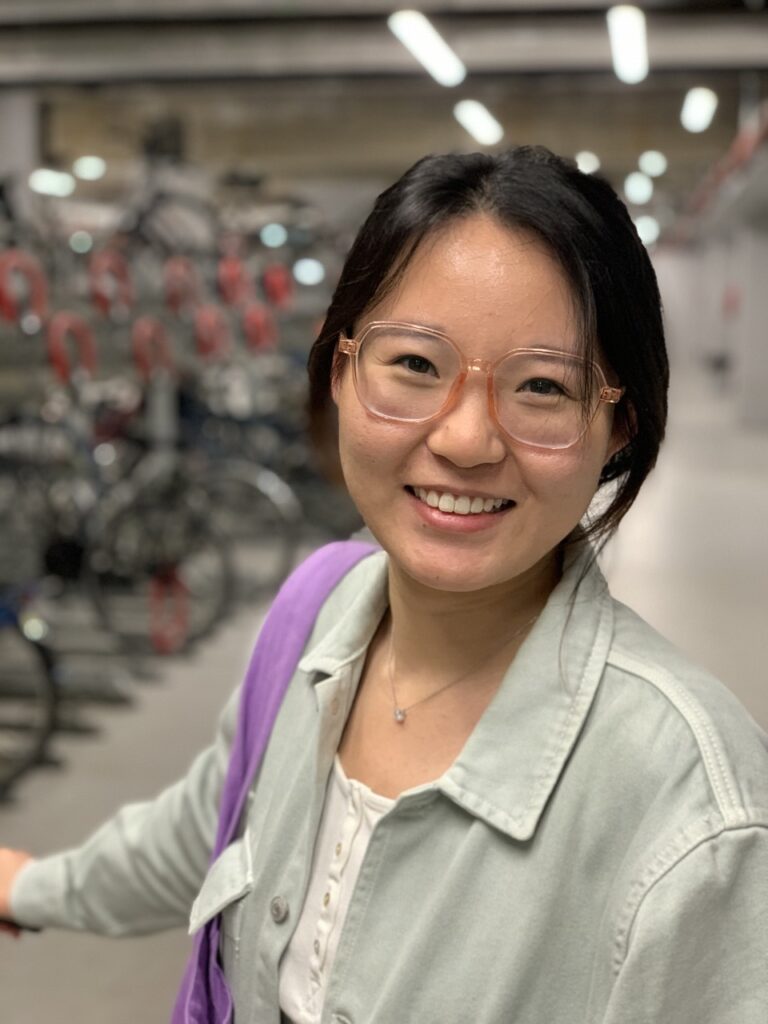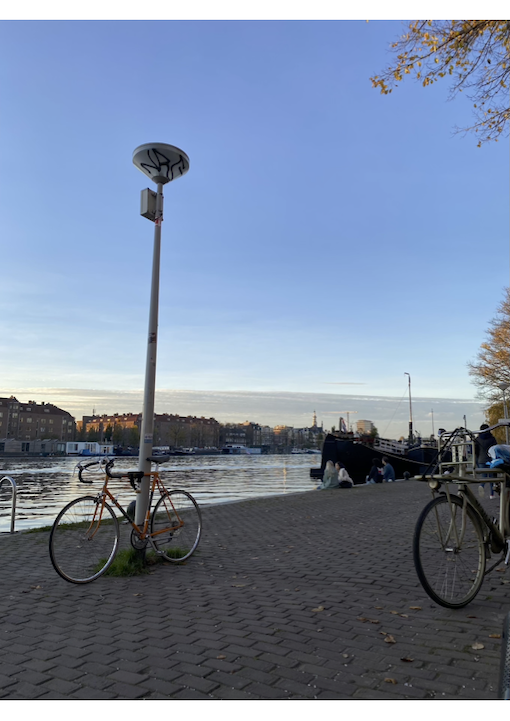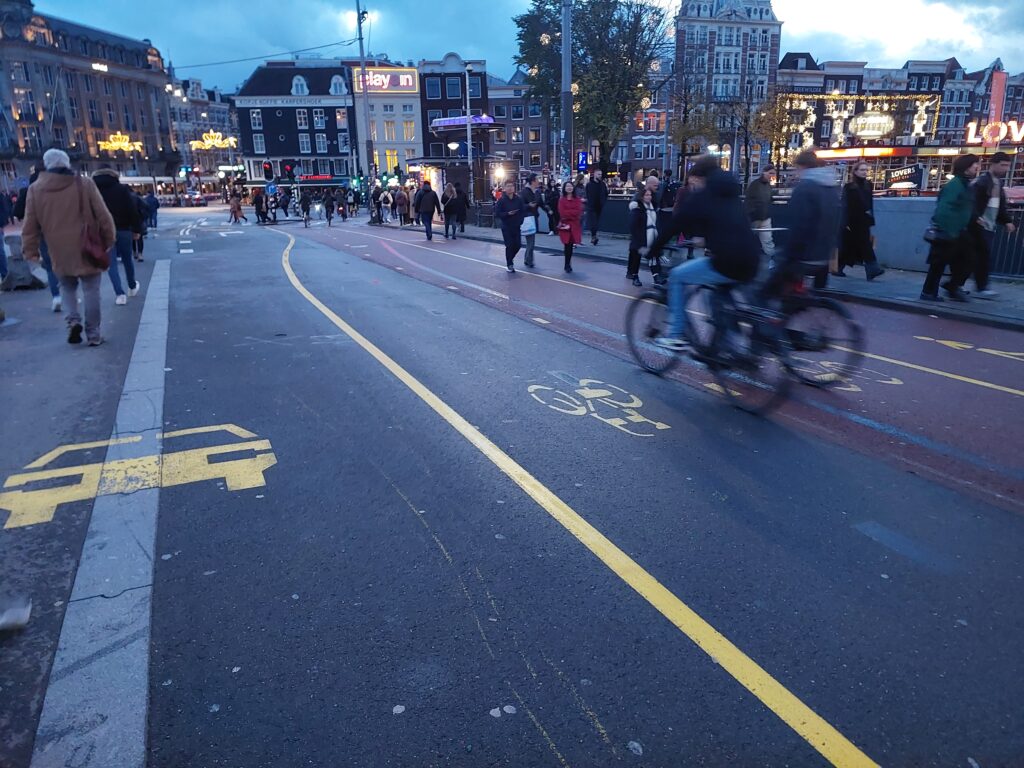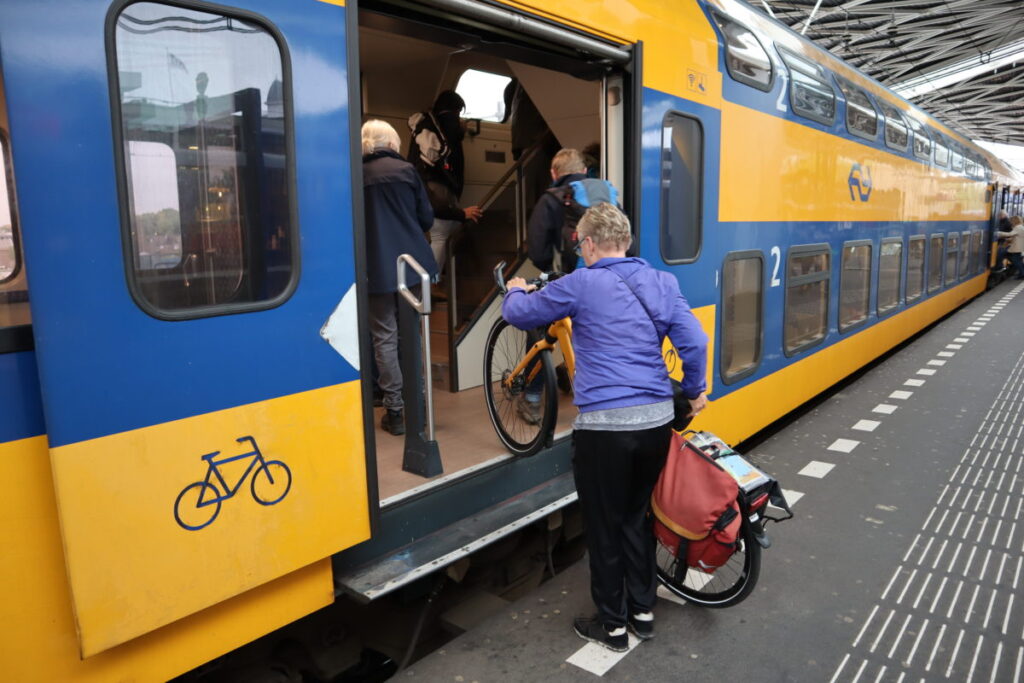Conducted by Anne Kubo| LinkedIn

Ran is a PhD candidate at the University of Amsterdam. Her research focuses on the urban cycling environment, cyclists’ experience, behaviors, and emotions. She obtained her master’s degree in Landscape Architecture in China and has contributed to natural urban health and well-being in blue spaces through social media data analysis.
Anne Kubo: Please tell me a little bit about yourself!
Ran Zhang: My name is Ran and I come from China. I did my master’s and bachelor’s in China in landscape architecture and then applied here as a PhD student in urban planning with a sociological background. So this is kind of a new field for me. But I was also really interested in it because it’s kind of a switch of angles. Before I came here, I knew very little about cycling or mobility, but focused on urban design from an engineer’s point of view.
A: So, what made you choose to focus on cycling?
RZ: Well as at first, it was just a personal interest. I like to cycle. But in my perception, cycling is not the same in the Dutch environment. In China, not many people cycle long way for commuting, but more recreationally or for some time-flexible purposes, like visiting friends. That perspective of cycling changed a lot after I came here.
A: Moving on to your PhD research specifically, could you tell me a bit about your topic?
RZ: My research is all around cycling experience. Reviewing the literature, a lot of academics are underlining the importance of experience, but not actually unpacking it. When you ask people “what’s your feeling?”, people have totally different answers, different angles, it’s really subjective! And I’m trying to unpack it with its aspects. I did a literature review structured into three aspects: senses, affect, and cognition.
When people start a trip, they have a temporal process: you interpret sensory input, that changes your affective state with your emotional ups and downs. And subsequently, you have cognitive construction. In other words, the trip will form your attitudes to the trip, to everything around you, to the city as a whole. And your identity as a cyclist also changes. But that’s not a one-way influence. Your cognition can influence the way you interpret sensory input. And that can also be mediated by your affective states. So that kind of back and forth is what forms the whole cycling experience in a complicated process that I’m working on unpacking.
A: How are you going about studying this relationship between a person and their environment?
RZ: My current plan is to build my framework on the cycling subjective experience, then understand what physical features influence people’s experience through empirical research. I’ll ask participants to ride through given cycling corridors recorded by video, and afterwards interview them about their sensory and emotional experiences during trips.
A: What are you hoping to achieve with your research?
RZ: I want to contribute a bit to the cycling environment. Until now I think people are more focused on increasing the cycling rates. But it’s just like one quote from Spinney where he asks: “What if people cycle more, but are miserable?” That’s possible, right? You can’t only focus on getting more and more people to cycle when people are not happy cycling. I think that the quality of cycling environments needs to be highlighted.
In my language, I couldn’t find a widely used word that can translate precisely into ‘mobility’, ‘transportation’ is still more emphasized. The difference is: transportation is more functionalist and utilitarian, how to make people move fast from A to B. Mobility, on the other hand, allows you to focus more on how you can increase the positivity or richness of experience during the trip. And that, I think, would be my contribution, because I think so far people are still focused on how to tackle the limitations and negative parts of cycling, because we need a more efficient transportation system. So, how to deal with traffic noise and congestion, how to make people feel less stressed. But it’s possible with cycling for people to feel relaxed and enjoyable. But that’s hard to measure and very few people even mention it.
A: What is your favourite part of your research?
RZ: I really enjoy interdisciplinary exploration. Sometimes I feel confused or caught between my friends from the engineering field and my new friends from the social science field. People can often see the same thing with a totally different lens, and that’s the really interesting journey of interdisciplinary exploration. I think that things need to be mixed, that the world is complicated, and that you cannot see it from just a single angle.
Bridging different groups and communities, both culturally and academically seems to be of particular importance to Zhang and her research. Throughout her interview she expressed her wish to bring together the tech-minded “transportation”-ers and the social science “mobility”-minded in the Netherlands. She also mentions her work doing comparative research between Shanghai and Amsterdam, expanding on possible cultural variables involved in the cycling subjective experience. Regarding plans for the future, Zhang hopes to learn Dutch to be able to better communicate and interact with locals.
You can also take a look at a summary of her new journal article here: Unpacking Cycling Subjective Experience.



